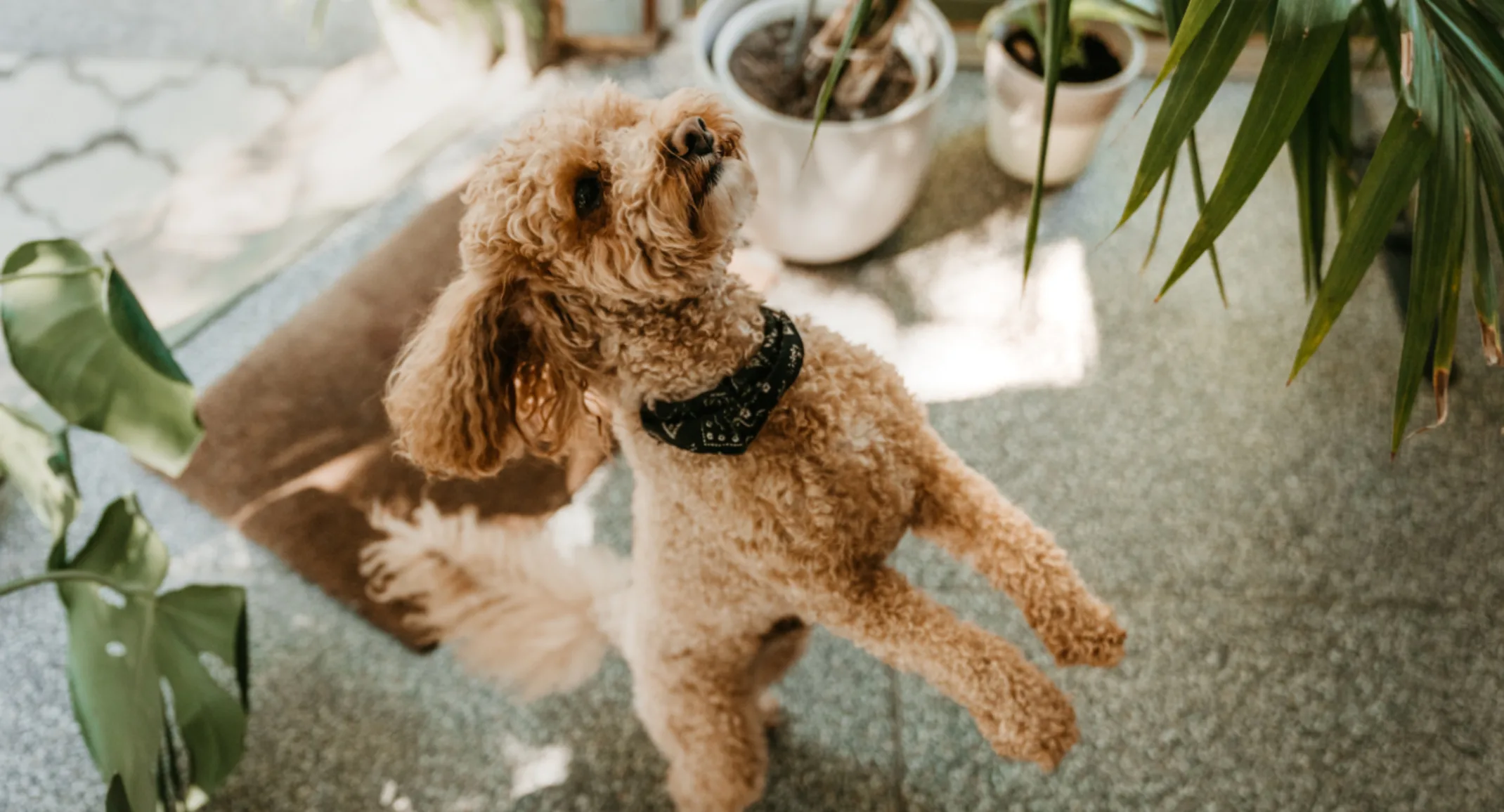Pretty but Dangerous: Toxic Plants for Pets in Florida
November 10, 2025 · Pet Safety

Many plants that brighten our homes and yards can be surprisingly dangerous for pets. Some cause only mild irritation, while others can be life-threatening, even in small amounts.
At Veterinary Emergency Referral Center (VERC) in Pensacola, Florida, we frequently see cases of plant toxicity in both cats and dogs. Understanding which plants pose a risk can help you prevent a potentially serious emergency.
Pretty & Toxic – Can Be Fatal
These plants can cause severe or fatal poisoning. If your pet chews or ingests any of these, seek emergency veterinary care immediately.
Lilies
Extremely toxic to cats. Even tiny exposures—like licking pollen or drinking water from a vase—can cause fatal kidney failure. Dogs are less sensitive but may experience gastrointestinal upset.
Sago Palm
A common Florida landscaping plant. Every part of it, especially the seeds, is highly toxic and can cause vomiting, diarrhea, seizures, liver failure, and death.
Oleander
A hardy ornamental shrub found throughout the South. Ingestion can cause drooling, vomiting, abnormal heart rhythms, and sudden death due to cardiac glycosides.
Lily of the Valley
Contains toxins similar to digitalis. Even small amounts can cause vomiting, disorientation, irregular heartbeat, and seizures.
Mistletoe
A traditional holiday plant that can cause vomiting, slowed heart rate, low blood pressure, collapse, and even death.
Azaleas / Rhododendrons
Popular in Florida gardens but highly toxic. Contain grayanotoxins that can lead to vomiting, diarrhea, tremors, weakness, and potentially fatal heart failure.
Daffodils
The entire plant, especially the bulb, can cause vomiting, drooling, lethargy, and heart irregularities.
Tulips / Hyacinths
The bulbs are the most toxic part and can cause drooling, vomiting, diarrhea, and tremors.
Lantana
A Florida native ornamental with bright flowers. Causes vomiting, diarrhea, and liver failure in pets.
Castor Bean
Seeds contain ricin, causing vomiting, abdominal pain, and potentially death.
Pretty & Not Fatal – But Still Harmful
These plants are not typically deadly, but ingestion can cause pain, irritation, or significant stomach upset. Veterinary care is still recommended if your pet chews or swallows them.
Pothos (Devil’s Ivy)
Causes oral irritation, drooling, vomiting, and facial swelling. Very common as an indoor vine.
Philodendron
Another popular houseplant that causes mouth irritation, drooling, and vomiting.
Dieffenbachia (Dumb Cane)
Causes intense mouth pain, swelling, drooling, and vomiting due to calcium oxalate crystals.
Peace Lily
Despite its name, this plant isn’t peaceful for pets. Causes oral irritation, drooling, and vomiting, but is not fatal like true lilies.
Poinsettia
A holiday favorite that may cause mild mouth irritation, vomiting, and diarrhea.
Holly
A common holiday plant; causes vomiting, diarrhea, drooling, and abdominal pain.
Chrysanthemums (Mums)
Contain pyrethrins, which can cause vomiting, drooling, incoordination, and skin irritation.
Hydrangeas
Contain cyanogenic glycosides that may cause vomiting, diarrhea, lethargy, and depression.
Aloe Vera
Safe for people, but not for pets. Causes vomiting, diarrhea, lethargy, and tremors when ingested.
Amaryllis
A common holiday flower that contains toxic alkaloids. Ingestion can cause vomiting, drooling, abdominal pain, tremors, and lethargy. The bulbs are the most dangerous part.
Other Florida Plants to Watch Out For
Pensacola’s climate allows many tropical plants to thrive, some of which can be harmful to pets:
Yesterday-Today-and-Tomorrow (Brunfelsia) – Causes vomiting, tremors, and seizures.
Caladium – Causes drooling, pawing at the mouth, and oral irritation.
Wisteria – Seeds and pods can cause vomiting and diarrhea.
What To Do If Your Pet Eats a Toxic Plant
If you suspect your pet has chewed or ingested a toxic plant:
Stay calm but act quickly.
Remove any remaining plant material from your pet’s mouth.
Take a photo or sample of the plant for identification.
Contact your veterinarian or VERC immediately.
You can also call ASPCA Animal Poison Control at (888) 426-4435 for additional help.
Pet-Safe Alternatives
If you love having greenery around your home, try choosing pet-safe plants such as:
Spider Plant
Boston Fern
Areca Palm
Bamboo Palm
African Violet
Parlor Palm
These plants add beauty to your home without posing a risk to your furry friends.
We’re Here 24/7 to Help
If your pet has eaten a toxic plant or you’re unsure what’s safe, Veterinary Emergency Referral Center (VERC) is here to help, day or night.
4800 N Davis Hwy, Pensacola, FL 32503
